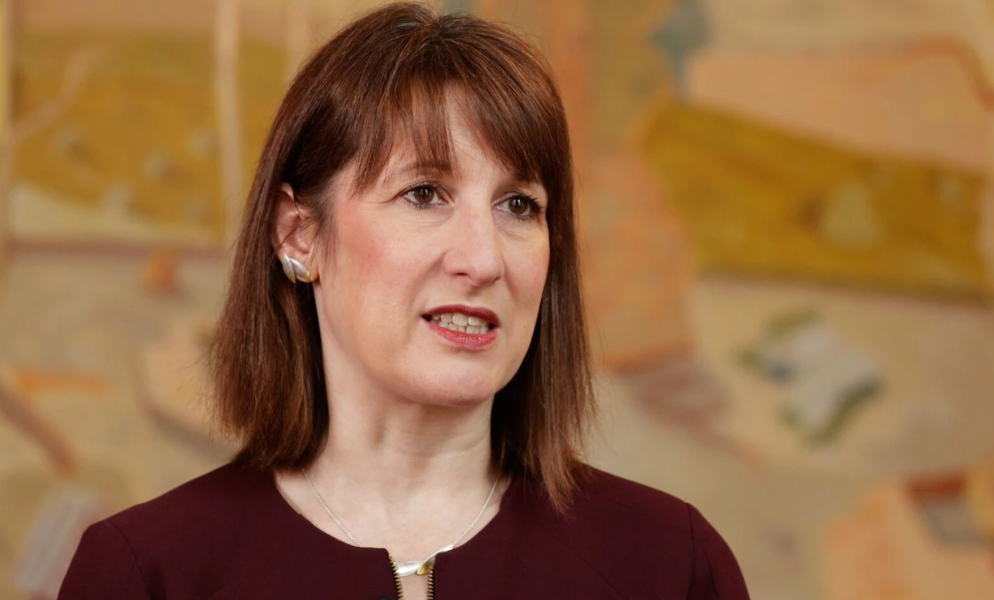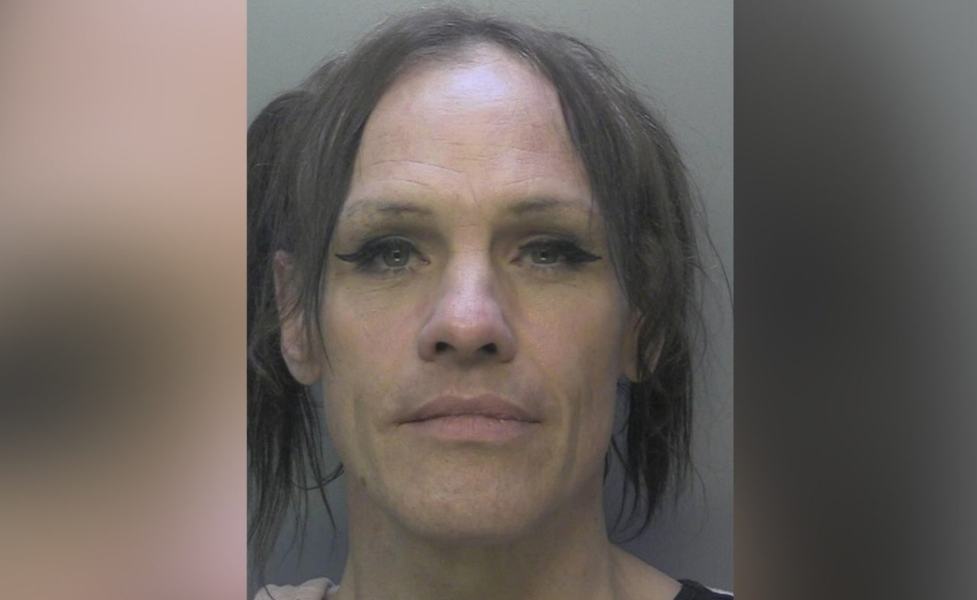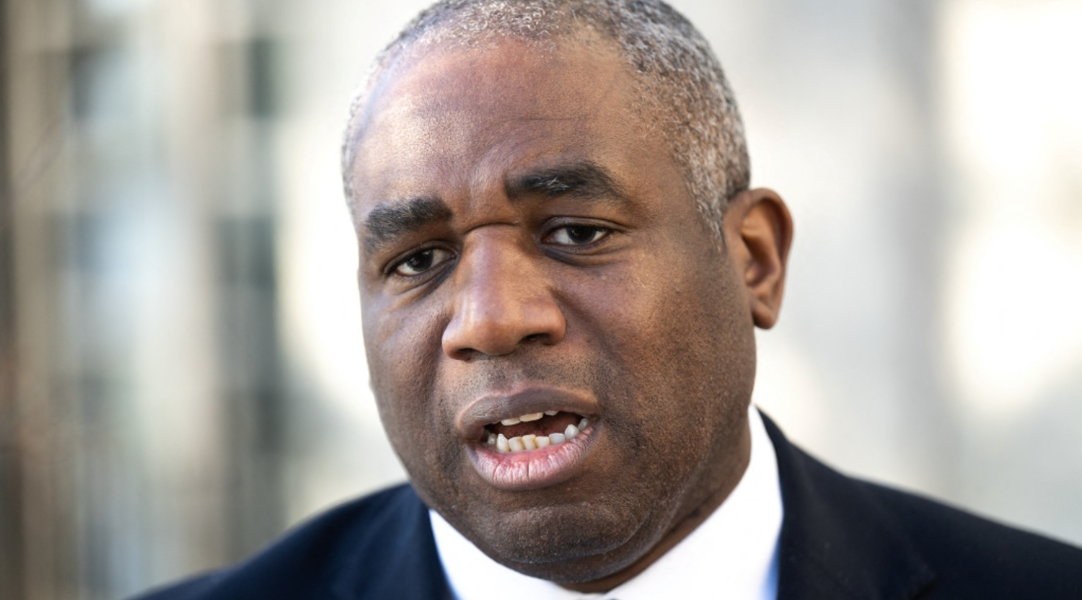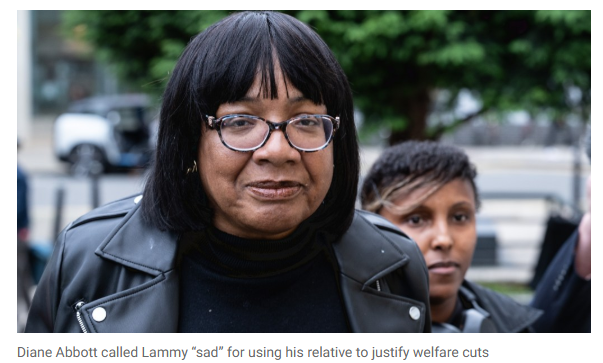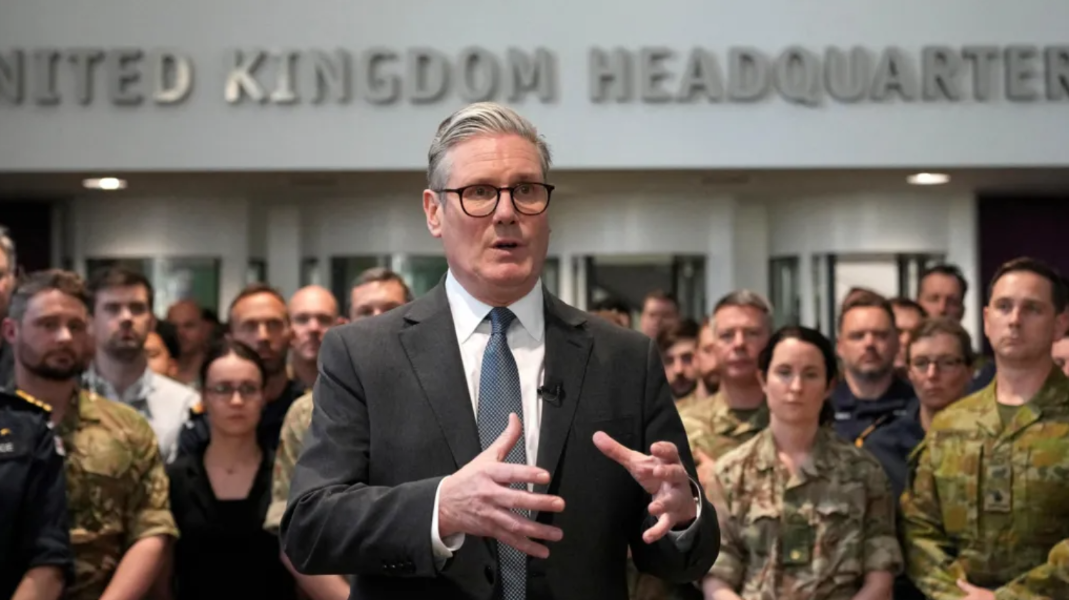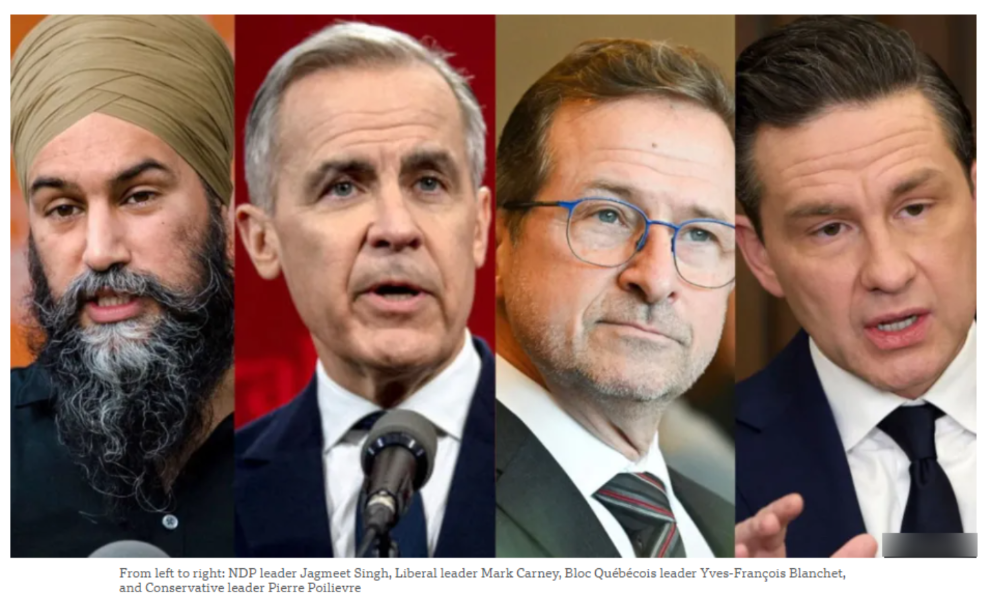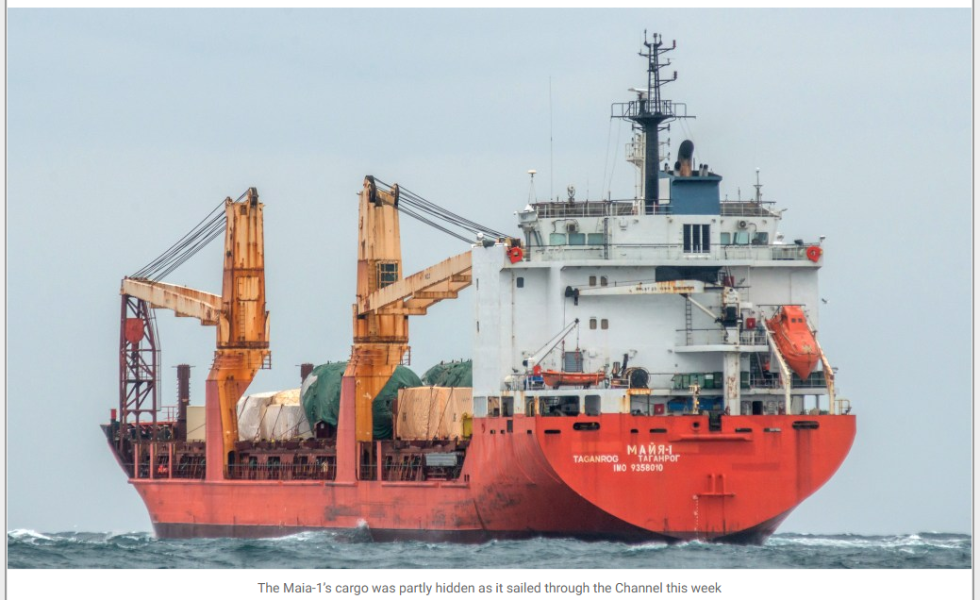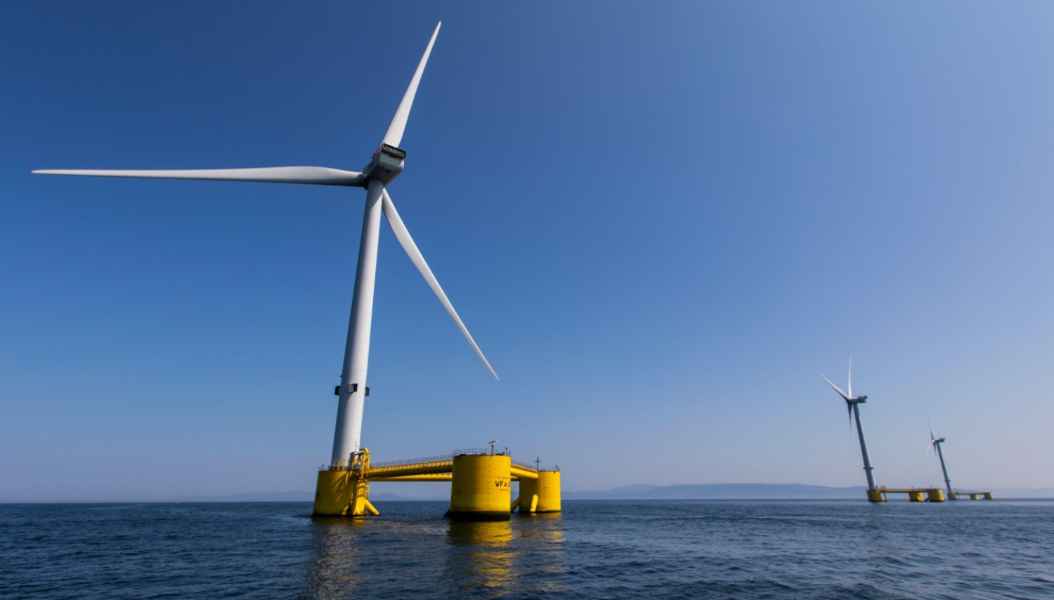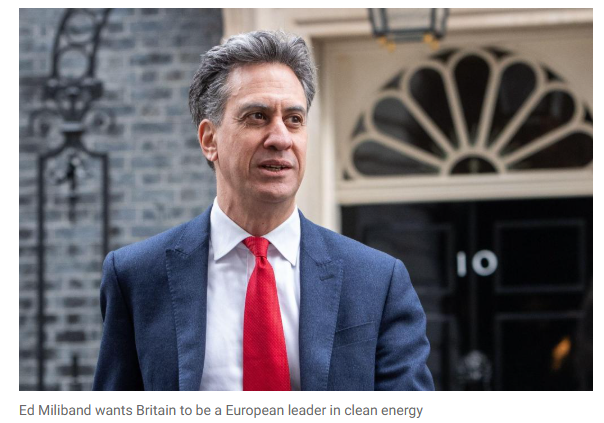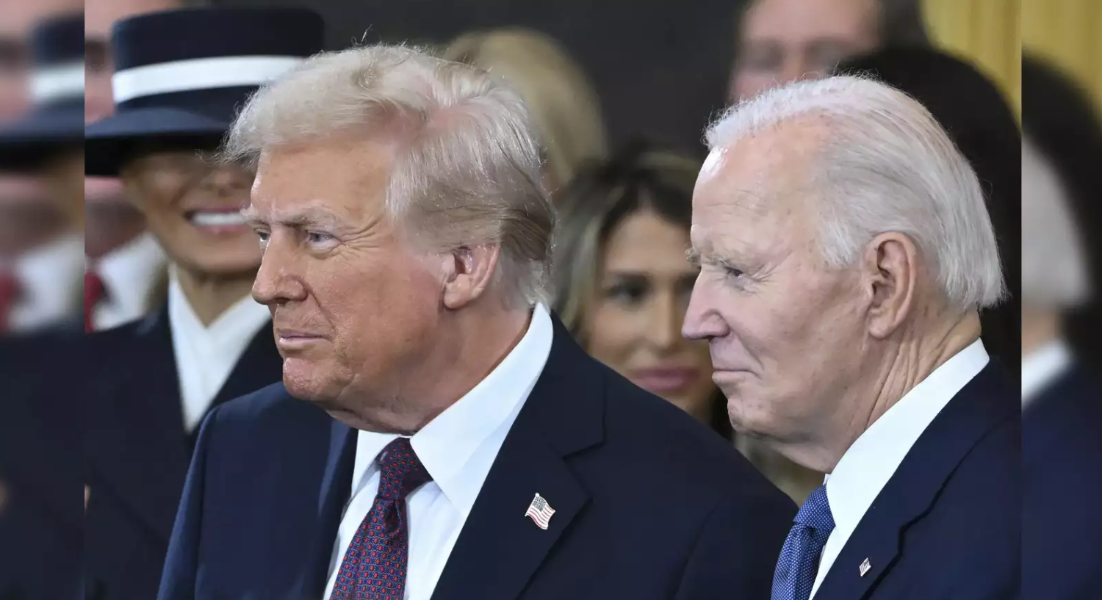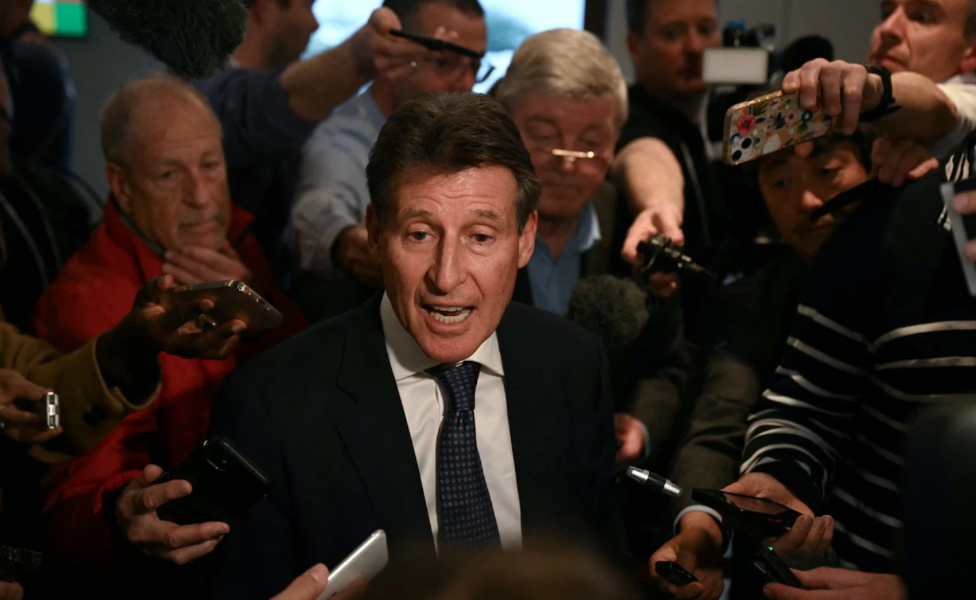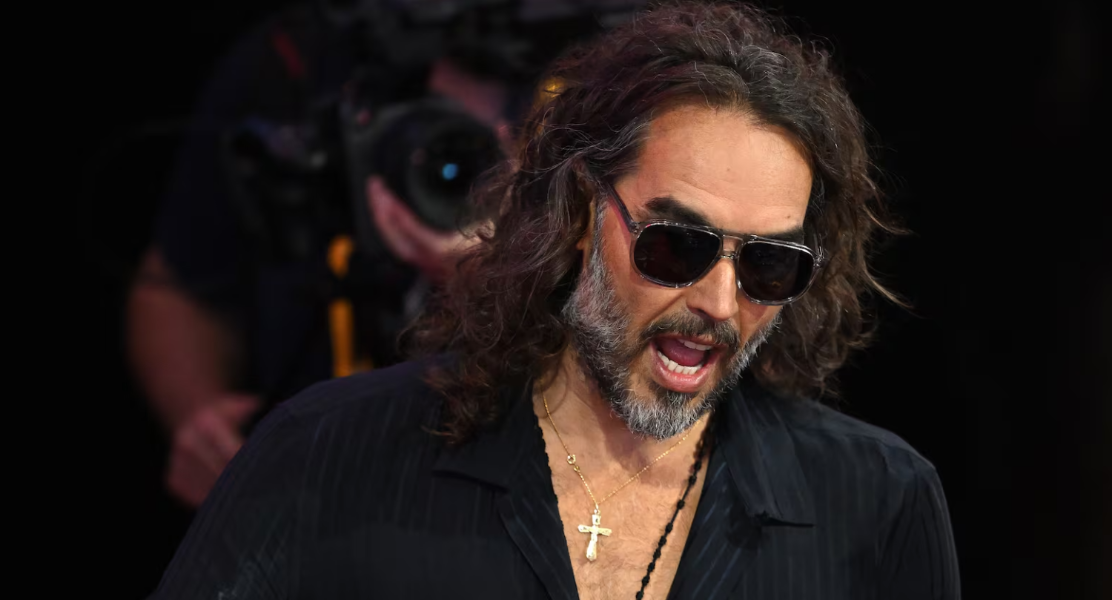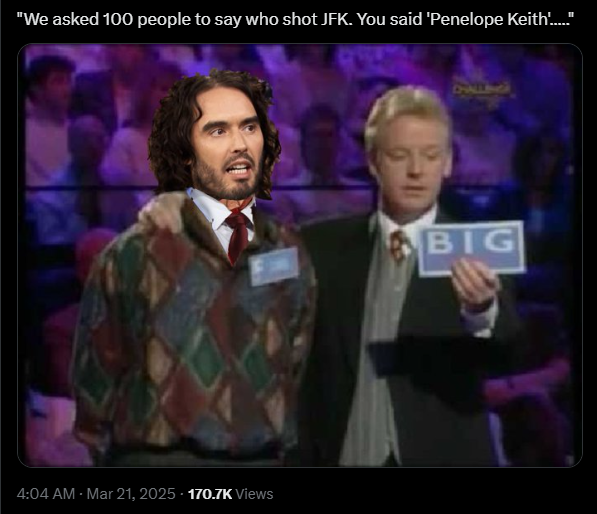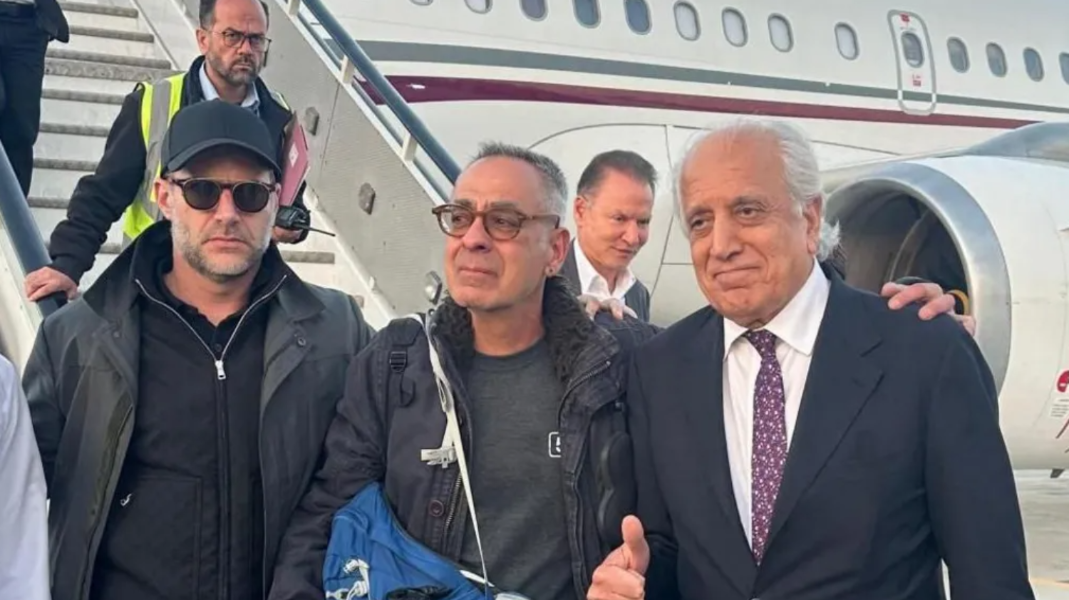-
Posts
9,973 -
Joined
-
Last visited
Content Type
Events
Forums
Downloads
Quizzes
Gallery
Blogs
Everything posted by Social Media
-
The Office for Budget Responsibility (OBR) is set to halve the UK’s growth forecast for 2025, dealing a significant setback to Prime Minister Sir Keir Starmer and Chancellor Rachel Reeves. The expected growth rate, initially projected at 2 percent, will now be downgraded to around 1 percent for the financial year spanning April 2025 to March 2026. Reeves, who will present the Spring Statement next week, is expected to attribute the decline to global economic challenges, particularly the economic impact of Donald Trump's trade policies. However, the revision poses a political embarrassment for both Starmer and Reeves, who have repeatedly stated that economic growth is their top priority. Critics have already pointed to Labour’s decision last October to implement £40 billion in tax increases—the largest tax hike in over thirty years—as a key factor in the UK’s weakening economic outlook. The increase in National Insurance for businesses has been widely blamed for slowing growth, with concerns mounting as Reeves prepares to announce significant spending cuts during her address to Parliament on Wednesday. While government sources insist that no additional tax increases will be announced, new efforts to combat tax avoidance are expected to generate extra revenue. It has been confirmed that without the revenue-raising measures already introduced, Reeves would have breached her own fiscal rules. In an attempt to explain the situation, Reeves is expected to argue that global conditions have shifted, citing Trump's return to office and rising global debt interest rates. However, this argument is undermined by surveys indicating that business confidence was already in decline before Trump took office. A British Chambers of Commerce study found that by early January, two-thirds of UK firms were already concerned about the growing tax burden. Shadow Chancellor Mel Stride did not hold back in his criticism, stating: "Before the election, Labour promised ‘growth, growth, growth,’ but their anti-business Budget has killed growth stone dead. The Chancellor has relentlessly talked Britain down, raised taxes to record highs, and burdened businesses with extreme employment legislation. With just six days until Labour’s emergency Budget, the Chancellor must think again." The worsening economic climate is expected to intensify debates within the government over the extent of spending cuts required. While the halved growth forecast aligns with projections from financial institutions, the precise figures remain closely guarded by the Treasury ahead of Wednesday’s announcement. In the autumn, the OBR faced accusations of excessive optimism in its projections. The latest forecast will bring it more in line with estimates from the Bank of England, which recently revised its 2025 growth estimate from 1.5 percent to 0.75 percent. Other economic indicators continue to decline, with the Bank of England warning on Thursday that inflation could rise from 3 percent to 3.75 percent by the end of the year. The official inflation target remains at 2 percent, a level briefly achieved in the final months of the previous Conservative government after a concerted effort to bring inflation down from double digits. The Bank of England’s decision to hold interest rates at 4.5 percent reflects concerns about declining business confidence, with more firms reportedly freezing hiring. Adding to the pressure, Reeves’ forthcoming increase in National Insurance for companies, expected to generate £25 billion, is set to take effect next month, sparking further backlash from the business community. Despite the bleak outlook, the Chancellor is expected to introduce new measures aimed at stimulating growth. Following a two-week focus on spending cuts, including reductions in welfare and Whitehall waste, Reeves will unveil policies designed to improve productivity and economic performance. However, the Spring Statement will not include detailed spending allocations for individual government departments, with those decisions postponed until June. Changes to overall Whitehall spending are anticipated. Reeves had previously announced a real-term increase of 1.5 percent in day-to-day departmental budgets, compared to the 1 percent rise planned by former Tory Chancellor Jeremy Hunt. However, much of her spending has been front-loaded, meaning the increase will taper off to 1.3 percent in the latter years of the decade. This figure is now expected to be revised downward. The Institute for Fiscal Studies has estimated that reducing the planned increase to 1.1 percent would save £5 billion annually. The reductions will help Reeves meet her fiscal targets, which include balancing day-to-day spending with tax revenues and ensuring public debt declines over a five-year period. However, they are also likely to provoke criticism from left-wing Labour MPs and reignite debates over similarities between Reeves’ approach and the austerity measures introduced by former Chancellor George Osborne. Treasury officials maintain that real-term public spending is still rising, arguing that their approach is not comparable to austerity. Last autumn, an additional £40 billion in public spending was announced. Nevertheless, economic analysts warn that the scale of cuts facing unprotected government departments in the coming years could be as severe as those imposed during the austerity era. Based on a report by The Telegraph 2025-03-24
-
Surrey Police have come under criticism for refusing to clarify whether a wanted "female" suspect is biologically male, prompting accusations that the force is misleading the public and hindering efforts to locate the individual. The controversy erupted after police issued a public appeal seeking information on the whereabouts of 49-year-old Skyla Stone, who failed to appear in court twice. The force initially described Stone as a "woman" and used the pronouns "she/her," stating: "We are appealing for the public’s help in finding wanted woman Skyla Stone. She is described as white, with brown hair and blue/green eyes and has links to Guildford." However, following public criticism, the police later updated their appeal to describe Stone as a "transgender woman" but continued to use female pronouns. Lisa Townsend, Surrey’s police and crime commissioner, was among those rebuking the decision, asserting that Stone is "a male, however they choose to identify." Heather Binning of the Women’s Rights Network (WRN) expressed concerns that the force’s wording could "seriously mislead the public and possibly put people in danger." The Surrey branch of WRN also criticized the police for making "it harder for this person to be located." Helen Joyce, director of advocacy at Sex Matters, linked the issue to broader concerns raised in the recent Sullivan review, which recommended that police forces record a person’s biological sex rather than their self-declared gender identity. "The day after the publication of the Sullivan review, which revealed widespread destruction of data on sex, we see a shocking example of the harms this does in policing," Joyce said. She further argued that using the term "transgender woman" still misleads the public, as "lots of people don’t know that a ‘transgender woman’ is not a woman at all, but a man who merely identifies as a woman." Calling the police’s wording "ideologically motivated nonsense," she warned that it undermines public trust and makes it harder for law enforcement to do their job. Deputy Chief Constable Nev Kemp defended the force’s approach, explaining that while they aim to respect personal pronouns, there is no national guidance on how such cases should be handled. "We have reviewed this appeal and have determined that it would have been appropriate to describe the person as a transgender woman, or someone who identified as a woman, to support our objective of finding and detaining this suspect," he stated. He confirmed that the force had since amended the appeal and was awaiting guidance from the National Police Chiefs Council on appropriate language use. This case has reignited debates over how police should handle gender identity in public appeals, with critics arguing that prioritizing self-identification over biological sex could compromise public safety and impede accurate data collection on issues affecting women. Based on a report by The Telegraph 2025-03-24
-
The Trump administration has officially announced its intention to expand oil and gas drilling in the Arctic, reigniting a long-standing debate over environmental conservation and economic development. In a formal statement released Thursday, the Interior Department outlined plans to open the entire 1.56 million-acre Coastal Plain of the Arctic National Wildlife Refuge to fossil fuel extraction, reversing restrictions imposed during the Biden administration. Under Biden’s policies, drilling in the Arctic refuge had been largely restricted, leading several oil companies to abandon their pursuits in the region. Now, with the Trump administration’s renewed focus on energy expansion, these opportunities may be revisited. Additionally, the administration aims to lift restrictions on the National Petroleum Reserve in Alaska’s Western Arctic. The Interior Department stated that it intends to make 82 percent of the 23-million-acre reserve available for drilling, rolling back Biden’s decision that had limited development to less than half of the land. Beyond oil drilling, the administration also signaled its intent to revoke a Biden-era ruling that had blocked an Alaska mining road, as well as advance efforts to strengthen a gas pipeline project. “It’s time for the U.S. to embrace Alaska’s abundant and largely untapped resources as a pathway to prosperity for the Nation, including Alaskans,” said Interior Secretary Doug Burgum in a written statement. “For far too long, the federal government has created too many barriers to capitalizing on the state’s energy potential. Interior is committed to recognizing the central role the State of Alaska plays in meeting our nation’s energy needs, while providing tremendous economic opportunity for Alaskans,” he added. The move aligns with President Trump’s long-standing stance on Arctic energy development. On his first day in office, he signed an executive order prioritizing expanded drilling in the region. During his previous term, he had already increased the percentage of the National Petroleum Reserve available for drilling from 52 percent under the Obama administration to 82 percent. While the administration’s announcement represents a key policy shift, these changes are not immediate. Implementing them requires navigating a complex regulatory process, meaning the expansion of drilling will not happen overnight. However, this formal declaration marks a significant step toward rolling back restrictions and pushing forward energy development. The Arctic National Wildlife Refuge remains one of the most controversial drilling locations due to its ecological significance. It provides a habitat for diverse wildlife, including grizzly bears, polar bears, gray wolves, caribou, and over 200 species of birds. Furthermore, the land holds deep cultural and spiritual importance for the Gwich’in people. Despite environmental concerns, some Alaskan Native groups support drilling, seeing it as a crucial economic driver for the state. The debate over Arctic drilling continues to highlight the tension between conservation efforts and economic priorities, setting the stage for further legal and political battles in the years ahead. Based on a report by The Hill 2025-03-24
-
Foreign Secretary David Lammy has found himself at the center of a political storm after revealing in a cabinet meeting that a member of his extended family had been claiming benefits they were "probably" not entitled to. His comments came during a heated discussion among senior Labour ministers over proposed welfare cuts aimed at saving the government £5 billion. The meeting, which saw tensions flare over the controversial reforms, included pushback from key figures such as Deputy Prime Minister Angela Rayner, Energy Secretary Ed Miliband, and Commons Leader Lucy Powell. They reportedly questioned whether restricting welfare benefits was the right approach to balancing the budget. Powell even interrupted Science Secretary Peter Kyle as he defended the cuts, arguing that they were both fiscally necessary and morally justifiable. A government source described the exchange as "tense." Lammy, who has often spoken about his own childhood struggles in poverty in Tottenham, North London, weighed in by citing his relative’s situation as an example of why reforms were needed. However, he has since refrained from publicly commenting on the matter. His remarks have added fuel to an already divisive debate, as Labour MPs voice concerns that the cuts could leave up to 1.2 million people without essential financial support. Criticism quickly followed from both inside and outside the party. Polly Billington, a former special adviser to Ed Miliband, questioned the impact of the changes in Parliament, asking how “reducing support for those who struggle to wash and dress themselves” would help address worklessness. Meanwhile, veteran Labour MP Diane Abbott strongly condemned Lammy’s justification of the cuts, accusing him of painting his own relative as a "scrounger." Abbott further argued that the real causes of financial hardship lay elsewhere, stating, “I hope people properly understand, it has never been migrants or asylum seekers making you worse off. It is your landlord, your bank, your supermarket, your energy supplier — and your government.” She warned that allowing the government to proceed with these cuts unchallenged would only lead to further austerity measures, which, she argued, do not actually improve public finances. The controversy surrounding Lammy’s comments highlights broader divisions within Labour over welfare policy. While the government insists the cuts are necessary to curb unnecessary spending and restore financial stability, critics within the party fear they will disproportionately harm vulnerable people. With public opposition growing and Labour MPs voicing their discontent, the battle over welfare reform is far from over. Based on a report by The Times 2025-03-24
-
The Department of Homeland Security (DHS) has decided to eliminate three internal watchdog agencies responsible for investigating complaints and advocating for immigrants, calling them unnecessary obstacles to immigration enforcement. The agencies, which had approximately 300 employees, played a crucial role in addressing concerns about detention conditions, green card and citizenship application delays, and the treatment of migrants in the U.S. DHS spokeswoman Tricia McLaughlin confirmed the decision, stating that the Office for Civil Rights and Civil Liberties, the Office of the Immigration Detention Ombudsman, and the Office of the Citizenship and Immigration Services Ombudsman were being dismantled due to their role in “obstructing immigration enforcement by adding bureaucratic hurdles and undermining DHS’s mission.” Employees of these agencies now face termination within 60 days unless reassigned within the department. These watchdog offices were among the few internal mechanisms ensuring oversight of DHS’s immigration enforcement actions. They provided critical reports to Congress and offered information to immigrants facing deportation, many of whom lack legal representation. Former DHS Inspector General John Roth described the agencies as “the first line of defense when it comes to oversight.” The Office for Civil Rights and Civil Liberties, which employed over 150 staff members with a $46 million budget, focused on more than just immigration issues. It investigated complaints related to natural disasters, cybersecurity threats, and terrorism. In one notable case, the office examined an incident involving a federal agent mistreating a traveler in a wheelchair. The agency also investigated allegations of sexual assault in detention centers and discrimination against minorities and disabled veterans seeking employment at DHS. The Office of the Immigration Detention Ombudsman, which had over 120 employees, reviewed more than 11,000 complaints in 2023 alone. It conducted inspections and issued reports on detention conditions, advocating for improved treatment of detainees. The office even launched billboard campaigns informing detainees of their rights, which some Republican lawmakers opposed. One billboard read, “Your brother in immigration custody has rights. We’re here to help.” The Citizenship and Immigration Services Ombudsman, with its 45 staffers, handled 30,000 requests for assistance in 2023. Many of these involved individuals whose green card or work permit applications were rejected due to clerical errors, as well as those desperate to reunite with their families. The office also processed appeals for immigrants seeking entry under the parole program, which was later discontinued by the Trump administration. “Many of the requests are heart-wrenching; individuals detail the danger, hunger, and desperation that family members face in their home countries,” said then-acting ombudsman Nathan Stiefel in his annual report to Congress. Despite the critical work these agencies performed, DHS maintains that their closure is necessary to “streamline oversight” and remove barriers to immigration enforcement. “Rather than supporting law enforcement efforts, they often function as internal adversaries that slow down operations,” McLaughlin argued. She emphasized that the move ensures taxpayer dollars are directed toward DHS’s primary missions: border security and immigration enforcement. The decision has drawn significant criticism, particularly from Democrats on the House Homeland Security Committee, who accused the administration of trying to eliminate oversight that could expose illegal or unconstitutional actions. Critics argue that dismantling these offices weakens the department’s accountability, particularly as aggressive immigration enforcement measures continue. An official from the Office of the Immigration Detention Ombudsman, speaking anonymously, called the decision “senseless,” pointing out that the agency’s oversight helped identify unlawful behavior and contract fraud, ultimately saving DHS money by preventing lawsuits. “This is only for cruelty,” the official said. “You don’t fire organizations that save the agency money.” The closure of these watchdog agencies marks a significant shift in DHS policy, reducing internal oversight at a time when immigration enforcement remains a contentious issue. Whether this decision leads to increased efficiency or exacerbates existing concerns about detainee treatment and due process remains to be seen. Based on a report by WP 2025-03-24
-
Donald Trump’s special envoy, Steve Witkoff, has rejected UK Prime Minister Sir Keir Starmer’s proposal for an international force to oversee a ceasefire in Ukraine, calling it "a posture and a pose." Speaking in an interview with pro-Trump journalist Tucker Carlson, Witkoff criticized the idea as "simplistic," accusing Starmer and other European leaders of trying to emulate Winston Churchill. During the interview, Witkoff spoke highly of Russian President Vladimir Putin, saying he "liked" him and did not consider him a "bad guy." He described Putin as "super smart" and shared details of a recent meeting between them that took place ten days prior. According to Witkoff, Putin had been "gracious" and "straight up" in their discussions. He also claimed that Putin had prayed for Trump after last year's assassination attempt on him and had commissioned a portrait of the former U.S. president as a gift. "Trump was clearly touched by it," Witkoff added. Throughout the discussion, Witkoff echoed several Russian narratives, including the claim that Ukraine was "a false country" and questioned when the world would recognize the occupied regions of Ukraine as Russian. Although he leads the U.S. ceasefire negotiations with both Ukraine and Russia, he struggled to name all five Ukrainian regions that Russia has annexed or partially occupied. "The largest issue in that conflict are these so-called four regions, Donbas, Crimea, you know the names and there are two others," he stated. The five regions in question—Luhansk, Donetsk, Zaporizhzhia, Kherson, and Crimea—comprise significant parts of eastern and southern Ukraine. Witkoff made several assertions that have been widely disputed or debunked. He claimed that Ukrainian troops were surrounded in the Kursk region, a claim denied by Ukraine’s government and not supported by any available evidence. He also stated that referendums in the occupied regions showed overwhelming support for Russian rule, even though such referendums, held at different times, have been widely discredited by international observers. Additionally, he suggested that these regions were Russian-speaking, implying that this justified Russia’s occupation. While many people in Ukraine do speak Russian, this has never been a reliable indicator of support for Russian governance. He further justified Russia’s full-scale invasion by arguing that, from a Russian perspective, the occupied territories were already part of Russia. "The elephant in the room is, there are constitutional issues within Ukraine as to what they can concede to with regard to giving up territory. The Russians are de facto in control of these territories. The question is: will the world acknowledge that those are Russian territories?" he asked. Witkoff also stated that Russia’s view of Ukraine as an artificial creation was central to the conflict. "There’s a sensibility in Russia that Ukraine is just a false country, that they just patched together in this sort of mosaic, these regions, and that’s what is the root cause, in my opinion, of this war. Russia regards those five regions as rightfully theirs since World War Two, and that’s something nobody wants to talk about." Putin has consistently framed the war as a response to NATO expansion and the mere existence of Ukraine as an independent nation. Witkoff, however, argued that Russia had already achieved its objectives. "Why would they want to absorb Ukraine? For what purpose? They don’t need to absorb Ukraine… They have reclaimed these five regions. They have Crimea, and they have gotten what they want. So why do they need more?" When asked about Starmer’s plan to form a "coalition of the willing" to provide military security guarantees for Ukraine after the war, Witkoff dismissed it as both performative and naive. "I think it's a combination of a posture and a pose and a combination of also being simplistic. There is this sort of notion that we have all got to be like [British wartime prime minister] Winston Churchill. Russians are going to march across Europe. That is preposterous, by the way. We have something called NATO that we did not have in World War Two." He revealed that a ceasefire in the Black Sea was expected "over the next week or so" and suggested that a full 30-day ceasefire was "not far away." He also shared insights into Trump’s long-term vision for U.S.-Russia cooperation once relations are normalized. "Who doesn’t want to have a world where Russia and the US are doing collaboratively good things together? Thinking about how to integrate their energy policies in the Arctic, share sea lines maybe, send LNG gas into Europe together, maybe collaborate on AI together?" Based on a report by BBC 2025-03-24
-
Canadian Prime Minister Mark Carney has called a snap election for April 28, setting the stage for a fierce political battle against Conservative leader Pierre Poilievre. As Carney launched his campaign, much of the focus was on his stance toward U.S. President Donald Trump, who has recently taken an increasingly aggressive approach toward Canada. Speaking in French about U.S.-Canada relations, Carney asserted that he was "fully able to stand up" to Trump. However, he emphasized that any future discussions on trade must be preceded by Trump acknowledging Canada’s sovereignty. "He has to say it and accept it," Carney declared, making it clear that recognizing Canada as an independent nation was a prerequisite for broader negotiations. Despite tensions, the two leaders have yet to speak since Carney took office nine days ago. Carney’s announcement comes at a moment of heightened strain between the two nations. Trump’s tariff policies and recent remarks suggesting that Canada could become America’s "51st state" have fueled political debate north of the border. Carney framed these tensions as existential threats. "He wants to break us so America will own us," he warned. "We will not let that happen." The prime minister said his government was seeking a "strong positive mandate" to push back against these challenges. The election campaign is expected to be fiercely contested, with Carney facing Poilievre as his main opponent. Poilievre, who has drawn comparisons to Trump, launched his campaign by pledging to cut taxes, expand natural resource development, and bring jobs back to Canada. His supporters argue that he represents a break from what they see as the economic struggles caused by years of Liberal leadership. Following Carney’s announcement, the Conservative Party swiftly responded. Former Conservative leader Andrew Scheer criticized Carney, stating that his leadership would make Canada "poorer, weaker, and more vulnerable to the U.S." Conservative MP Michelle Rempel Garner echoed this sentiment, writing that the "lost decade of Liberal-caused crises is about to end." Meanwhile, New Democratic Party (NDP) leader Jagmeet Singh wasted no time in attacking Carney. He accused the prime minister of siding with the wealthy over working Canadians. "When times get tougher, he won’t step in, he’ll step aside," Singh said. He also condemned Trump’s trade war as "illegal," arguing that it was causing job losses in Canada. Singh, along with Carney and Poilievre, made it clear that Canada would not become America’s "51st state." As the election campaign gets underway, polls suggest a tight race. The latest data from CBC’s Poll Tracker shows the Liberals at 37.5% and the Conservatives at 37.1%, making the contest virtually a dead heat. However, analysts warn that public opinion has been volatile in recent weeks. The NDP sits at 11.6%, while the Quebec-focused Bloc Québécois polls at 6.4% nationally but holds a strong 28.4% in Quebec. The Green Party has 3.8% support, while the People’s Party of Canada, still seeking its first parliamentary seat, is polling at 2.2%. With less than six weeks until election day, the battle lines have been drawn. Carney is positioning himself as the defender of Canadian sovereignty against an unpredictable U.S. president, while Poilievre presents himself as the leader who can reinvigorate the economy. Singh, in turn, argues that neither Carney nor Poilievre will stand up for ordinary Canadians. As the campaign unfolds, Canada’s relationship with the U.S. is likely to remain a dominant issue in the race for the country’s leadership. Based on a report by BBC 2025-03-24
-

Updates and events in the War in Ukraine 2025
Social Media replied to cdnvic's topic in The War in Ukraine
A post making a false claim on the link provided has been removed @beautifulthailand99 -

Nightmare in Kursk: Ukrainian Troops Recount Devastating Retreat
Social Media replied to Social Media's topic in World News
A post containing a link from a Russian website has been removed as it is unapproved. This is not the first time I have removed Russian links from you @beautifulthailand99 Please keep on topic: Nightmare in Kursk: Ukrainian Troops Recount Devastating Retreat -
A 'groundbreaking' discovery beneath the Egyptian pyramids has taken the world by storm. Researchers from Italy and Scotland claim to have uncovered 'a vast underground city' which stretches more than 6,500 feet directly underneath the Pyramids of Giza, making them 10 times larger than the pyramids themselves. The bombshell claim - which many experts claim to have already debunked - comes from a study that used radar pulses to create high-resolution images deep into the ground beneath the structures, the same way sonar radar is used to map the depths of the ocean. The paper, which has not been peer-reviewed by independent experts, found eight vertical cylinder-shaped structures extending more than 2,100 feet below the pyramid and more unknown structures 4,000 feet deeper. A press release described the findings as 'groundbreaking' and if true could rewrite the history of ancient Egypt. However, independent experts have raised serious concerns about the study. The work by Corrado Malanga, from Italy's University of Pisa, and Filippo Biondi with the University of Strathclyde in Scotland has only been released during an in-person briefing in Italy this week and is yet to be published in a scientific journal, where it would need to be analyzed by independent experts. Despite the skepticism, Professor Conyers added that the only way to prove the discoveries to be true would be 'targeted excavations.' 'My take is that as long as authors are not making things up and that their basic methods are correct, their interpretations should be given a look by all who care about the site,' he explained. 'We can quibble about interpretations, and that is called science. But the basic methods need to be solid.' Malanga and Biondi’s published a separate peer-reviewed paper in October 2022 in the scientific journal Remote Sensing which found hidden rooms and ramps inside Khafre, along with evidence of a thermal anomaly near the pyramid's base. Based on a report by Daily Mail 2025-03-22
-
Britain has been barred from accessing a massive €150 billion European Union defence fund after France successfully pushed for a policy that limits purchases to EU-based companies. The decision, which also excludes suppliers from the US and Turkey, marks a significant setback for Prime Minister Sir Keir Starmer’s efforts to forge a united European front against Russian aggression. Under the European Commission’s new proposal, the EU fund—known as Security Action for Europe (SAFE)—will only consider purchasing British-made weapons if the UK signs a security pact with Brussels. France, however, has linked such a deal to fishing rights, further complicating negotiations. “Europe needs Britain’s defence industry a bit more than the French need a few extra fish,” a senior British government source said. “It is astonishing how puerile the French are behaving. They have not grasped the enormity of the moment.” In recent weeks, President Emmanuel Macron has positioned himself alongside Starmer as a key figure in European efforts to boost military capabilities, particularly in response to former US President Donald Trump’s remarks casting doubt on NATO’s Article 5 commitment. Macron has called for Europe to “act united” in strengthening its defences. At the same time, however, France has spearheaded a diplomatic push in Brussels to adopt a “Europe only” procurement strategy—an approach that effectively shuts out major British defence firms like BAE Systems and Babcock from SAFE funding. The exclusion policy specifically bans the purchase of advanced weapons systems where a non-EU country, such as the UK or US, has “design authority.” This is meant to prevent any non-EU country from influencing the use of weapons after they have been sold. The decision follows growing concerns in Europe over reliance on US arms, especially after Trump temporarily froze military aid and intelligence sharing with Ukraine. European leaders fear that Washington could withhold or even disable key weapons systems in the future. The US was recently forced to deny the existence of a so-called “kill switch” on F-35 fighter jets, which are widely used by European militaries. Other US-made weapons, such as the Patriot air defence systems, have also been scrutinized despite their proven effectiveness in intercepting Russian cruise and ballistic missiles in Ukraine. “We cannot have a situation where a non-EU country has control on the use or the destination of a weapon or a situation where objections can be made,” one EU diplomat said. Macron has seized the opportunity to promote French-made military equipment as an alternative to American weapons. “Those who buy Patriot should be offered the new-generation Franco-Italian SAMP/T. Those who buy the F-35 should be offered the Rafale,” he said last weekend. However, other European countries, including Germany and Poland, have resisted Macron’s push for French arms. “Unfortunately the French is just not as good or as easily available,” a European diplomat remarked. Despite being locked out of the EU fund, Britain is still working on a broader European defence initiative. Starmer is collaborating with European nations on the creation of a €600 billion “rearmament” bank, which would be independent of the EU to prevent pro-Kremlin countries like Hungary from blocking defence spending decisions. British officials remain hopeful that countries such as Germany could still choose to buy from UK defence firms outside of the EU’s joint funding mechanisms. German Chancellor Friedrich Merz recently adjusted the country’s borrowing rules to finance a significant expansion of defence spending. Meanwhile, it has emerged that the UK’s National Wealth Fund—despite its £28 billion budget—will not prioritize defence as a key sector. Instead, the fund will focus investments on clean energy, advanced manufacturing, digital technologies, and transport. Based on a report by The Times 2025-03-22
-
France is set to distribute a "survival manual" to every household in an effort to prepare citizens for potential crises, including armed conflict on French soil. The initiative, aimed at bolstering national resilience, will provide guidance on how to respond to a range of emergencies, from natural disasters to security threats. “The survival manual aims to encourage citizens to develop their resilience in the face of different crises,” a spokeswoman for Prime Minister François Bayrou told CNN. “This includes natural disasters, technological and cyber incidents, health crises like Covid-19, and security crises like terrorist attacks and armed conflict.” The 20-page booklet, which is expected to be distributed before summer if approved, follows similar initiatives in Sweden and Finland. These countries have already provided their citizens with guides on preparing for military conflicts, communication failures, power outages, and extreme weather events. The French version will align with information currently available on a government website launched in 2022, offering detailed steps on crisis preparedness. The manual will be divided into three sections, each containing practical advice on how to protect oneself and loved ones in the face of imminent danger. Recommendations include compiling a list of emergency contacts such as fire services, police, and ambulance teams, tuning into specific radio channels during crises, and securing doors in the event of a nuclear accident. Additionally, the booklet will outline ways for individuals to contribute to community defense, including volunteering for reserve units or local firefighting teams. It will also stress the importance of maintaining a "survival kit" stocked with essential supplies, such as six liters (1.6 gallons) of bottled water, a dozen tins of food, batteries, and a flashlight for power outages. Medical provisions like paracetamol, compresses, and saline solution will also be recommended. Many citizens view the initiative as a necessary precaution. “It’s very important to be prepared for a crisis, and I think the government is taking the right steps,” said Moussa Saki, a 19-year-old restaurant server in Paris. “I’m not worried about a war on French soil, but people need to know what to do, just in case. Basic things like medicine and food should be given to every household.” However, not everyone shares the same level of concern. Carine Langlois, 56, remains doubtful about the possibility of war in France. “I don’t think there will be a war. It’s not President Emmanuel Macron’s role to intervene between Trump and Putin. There are other matters that require urgent attention here in France,” she said. “We survived Covid, and we will manage if something else happens.” Laure Mourgue d’Algue, a 25-year-old primary school teacher, supports the initiative but believes preparedness goes beyond just having a manual. “Nordic countries like Sweden and Denmark are psychologically more prepared than France,” she said. “Having a basic knowledge of what you need to survive – like knowing how to handle electricity – is important in terms of risk management.” However, she added, “Psychological safety matters, and a piece of paper won’t provide that. We need training.” The prime minister’s spokeswoman emphasized that awareness and engagement are crucial. “The first step in citizen engagement is to be informed about threats and stay updated,” she said. “Engagement can also mean joining associations, such as the reserve forces. We are doing everything we can to ensure citizens are ready to respond in the event of a crisis.” Earlier this month, President Macron announced plans for a significant expansion of France’s security forces, aiming to increase the number of operational reservists from 40,000 to 100,000 by 2035. Speaking at a military base in eastern France, he stressed the importance of strengthening defense measures. “Our country and our continent must continue to defend themselves, equip themselves, and prepare if we want to avoid war,” Macron stated. “This is the choice we have made, and will continue to make. No one can say what will happen in the months and years to come.” Based on a report by CNN 2025-03-21
-
A convoy of Russian vessels, including a sanctioned cargo ship known for transporting North Korean munitions, has sailed through the English Channel in what analysts describe as a direct challenge to the UK’s sanctions regime. The Times, aboard a fishing vessel, tracked the Maia-1 as it followed a fleet of four other ships escorted by Russian warships. The Maia-1, sanctioned for carrying artillery shells from North Korea to Russia, was seen just hours behind Sparta IV and Siyanie Severa, two ships believed to be transporting military hardware from Syria to Russia. The convoy was heavily protected by the Severomorsk, a Russian destroyer, and the Alexandr Shabalin, a navy landing ship. The Times intercepted Maia-1 about 30 miles off Brighton as it made its way toward Dover. The ship was photographed carrying cargo components, partially hidden under tarpaulins, likely intended for a Russian liquefied natural gas terminal—another project subject to UK sanctions. This convoy is one of the largest Russian naval movements through British and French waters since the start of the war in Ukraine and marks the first time a gunrunner linked to North Korea’s arms trade has sailed through the Channel. Maia-1 is among more than 20 ships owned by a sanctioned company targeted by the UK, EU, and US. The British Ministry of Defence has previously named the vessel in a UN submission as one of the primary transporters of weapons from North Korea to Russia. The 138-meter-long ship has spent years moving munitions between North Korea and Vladivostok, with satellite images showing it delivering dozens of shipments to support Russian forces in Ukraine. For the first time since Russia’s full-scale invasion of Ukraine, Maia-1 departed the Pacific in January carrying cargo bound for St. Petersburg. The ship’s lengthy journey, which included stops in China, passage through Egypt’s Suez Canal and the Strait of Gibraltar before reaching the Channel, highlights the growing challenge to European sanctions. Maritime analysts say its ability to operate freely exposes the limitations of Western nations in disrupting Russian logistics. Hamish Macdonald, a senior analyst at the Open Source Centre, has been tracking Maia-1 for years. He stated that the ship is owned by a sanctioned company and is violating UN Security Council resolutions—resolutions that Russia itself voted for. “Despite this, the vessel appears to have been able to dock in China and likely load cargo, receive permissions for port entry in Vietnam, traverse the Suez Canal, dock and likely refuel in Algeria, and sail through the English Channel without issue. If a vessel such as this is able to access ports and services globally with impunity, then that represents a major challenge to western sanctions regimes,” he said. Sparta IV and Siyanie Severa, which also passed through the Channel on Monday, are believed to be carrying military hardware evacuated from Syria following the decline of Assad’s regime. Their escort, the 534-foot-long Severomorsk, is a formidable warship armed with anti-aircraft and naval cannons, 72 anti-ship and surface-to-air missiles, and 44 anti-submarine torpedoes and rockets. With a crew of 300 and the capability to deploy two Ka-27 military helicopters, it represents a significant show of force. The Aleksandr Shabalin, a 369-foot-long landing craft, was also deployed alongside the convoy, carrying up to 500 tons of armored vehicles and 225 marines. The Royal Navy and RAF closely monitored the convoy as it entered British waters near Folkestone and Dover. HMS Somerset, a Type 23 frigate, and HMS Cattistock, a minehunter, were deployed alongside RFA Tidesurge and naval helicopters to shadow the Russian vessels. A Belgian naval vessel, BNS Castor, also joined the operation. The RAF stated that it “responds swiftly to maritime threats to maintain national security.” A Royal Navy spokesperson emphasized the coordinated effort to track the convoy as it moved eastward through the North Sea toward the Baltic. “As the Russian ships sailed east through the Channel and the North Sea towards the Baltic Sea, the Royal Navy ships deployed powerful sensors and launched the Merlin and Wildcat helicopters to report on every move,” they said. Luke Pollard, the Armed Forces Minister, issued a stern warning to Russia. “Russia should be in no doubt that the UK will defend our waters. I’m grateful to all the personnel who shadowed this Russian convoy. National security is a foundation of the government’s Plan for Change and ensuring freedom of navigation contributes to our economy.” Based on a report by The Times 2025-03-22
-
Dan McGrail, interim chief executive of GB Energy, has expressed interest in investing a portion of his £8.3 billion budget in floating wind farm technology, a move that could position the UK as a global leader in the industry. McGrail believes that Britain has the potential to become an exporter of floating wind farms, utilizing its existing expertise and supply chains to drive innovation in the sector. Unlike traditional offshore wind farms, which are anchored to the seabed in the relatively shallow waters of the North Sea, floating wind farms use mooring lines attached to the sea floor, allowing them to harness deeper waters. Speaking on his third day in the role, McGrail stated, “Floating offshore wind is proven, but it hasn’t been scaled yet. There’s a huge opportunity for British enterprise.” He emphasized that the UK’s experience in oil and gas, along with its well-established supply chains, makes it well-suited to lead in this field. McGrail, formerly the head of industry group RenewablesUK and an executive at Siemens, pointed out that investing in floating wind farms could lead to more turbine components being manufactured domestically. British offshore wind developers have previously been criticized for their dependence on Danish and German suppliers. “If we are able to be catalytic in bringing forward more projects here, then we can deepen supply chains. That then turns into an export story over a much longer period of time,” he explained. He did not dismiss the possibility of GB Energy eventually owning floating wind farms outside the UK, similar to how Sweden’s state-owned Vattenfall operates England and Wales’s largest onshore wind farm. However, he stressed the importance of focusing on current projects. “Whether we are building wind farms in other countries … let’s do what we’ve got to do now well and do it right, and then we will explore what we do in the future,” he said. The UK currently leads the world in floating wind power capacity, but this technology still represents only a small fraction of its offshore wind resources. It is also costlier than fixed-bottom turbines and is not expected to reach price parity for several years. GB Energy is central to the government’s energy strategy, with Labour pledging that the company will contribute to reducing household energy bills by hundreds of pounds a year by 2030. The company is expected to announce its first investments soon, following reassurance from the Treasury that its budget will not be affected by the spending review. Energy Secretary Ed Miliband highlighted the importance of public investment in driving private sector contributions, stating, “Far from public investment crowding out private investment, as the old theory went, public investment can crowd in private investment.” Miliband argued that British taxpayers should reap the rewards of a state-owned energy company. “We looked at all the countries in Europe that were the winners in the global race for renewable jobs. And we reached a pretty clear conclusion, which is that every real European leader in this area that was getting the economic gains from clean energy had a publicly owned national champion to some extent or another, whether it’s Orsted or Statkraft or Vattenfall or EDF,” he said, referencing leading Danish, Norwegian, Swedish, and French energy firms. EDF, which is constructing the UK’s first new nuclear power station in decades in Somerset and planning another in Suffolk, has the British government as a majority stakeholder in the latter project. However, the Institute for Public Policy Research (IPPR) think tank has warned that insufficient funding for GB Energy could result in unmet expectations and a failure to deliver on its objectives of expanding clean energy and reducing bills. According to an IPPR report, the company’s £8.3 billion budget could supply 5 percent of the UK’s electricity needs by the 2030s. McGrail, who currently holds the role on an interim basis, emphasized the urgency of moving quickly. He did not rule out the possibility of applying for the permanent position in the future. Based on a report by The Times 2025-03-22
-
Tommy Robinson remains in isolation within HMP Woodhill due to threats against his life following conflicts with Muslim prisoners, a court has heard. The 42-year-old, whose real name is Stephen Yaxley-Lennon, is considered to be in danger if moved out of segregation due to existing tensions between Muslim and non-Muslim inmates, which officials argue would be "inflamed" by his presence. Robinson is currently serving an 18-month sentence for contempt of court after admitting to making false and defamatory claims about a Syrian refugee. He pleaded guilty to 10 breaches of a High Court order that prohibited him from repeating the claims, which had originally been made in one of his “documentaries.” Appearing via video link at the High Court on Thursday, Robinson, dressed in a grey prison-issued tracksuit, sought to challenge his segregation. His lawyers argued that his isolation is a violation of his human rights. They noted that Robinson was first segregated at HMP Belmarsh at the start of his sentence after reporting conflicts with "followers of Islam." When transferred to Woodhill in November, intelligence reports indicated that two prisoners were planning to assault him for “kudos and notoriety.” There were further credible reports that he had a "mark on his head" and could be "killed by a lifer" if he were housed with the general prison population. The court heard that tensions already existed between Muslim and non-Muslim prisoners before Robinson’s arrival and that his presence would "exacerbate" the situation, heightening the risk of violent clashes. His lawyer, Alisdair Williamson KC, argued that the significant Muslim population at Woodhill was "causing a difficulty," leading to Robinson’s prolonged isolation. Robinson’s mental health has reportedly deteriorated due to segregation. Williamson stated that his client had previously been diagnosed with post-traumatic stress disorder following isolation in a prior prison sentence, and that the condition had since been "reactivated." He argued that Woodhill was "not a safe place for him to be unless he is in segregation, but that segregation is, we suggest, harming him." He further contended, "As a civil prisoner who poses no risk, we suggest there should be a better way, a more humane way to manage his incarceration." Robinson himself has complained that "solitary confinement is destroying my mind" and expressed fear over its long-term effects. He claimed that his isolation was "politically motivated" and that he was being "provoked to react," adding, "I want to leave prison mentally well, not mentally broken." His legal team argued that segregation may lead to self-harming behaviors upon release, including substance abuse. However, Tom Cross, representing the Ministry of Justice, defended the decision to keep Robinson in isolation, stating that it was for his safety and not because of his political views. He asserted that even if Robinson were transferred to another prison, the threats against him would persist. Cross also highlighted that Robinson was receiving privileges not typically granted to other prisoners. He was housed on a "closed wing," separate from the standard segregation unit, and was allowed significantly more visiting time than any other inmate. Over five months, he had received 80 social visits and 13 non-family visits. He also had access to a phone, making over 1,250 calls, and possessed a laptop for emails, a DVD and CD player, and a gym facility. Despite spending three hours outside his cell daily—twice the amount granted to other segregated inmates—Robinson’s lawyers insisted that his conditions amounted to total isolation. However, Cross rejected this claim, arguing that the Ministry of Justice was not attempting to "break his resistance or will or to debase or humiliate him." He added, "The impact on his health has been and remains carefully monitored, and his fitness for segregation remains medically certified. There is no alternative to segregation which has been assessed as acceptable in light of the risks." Supporters of Robinson, including members of far-right media outlets, attended the hearing at the Royal Courts of Justice. Among them was Ezra Levant, the Canadian founder of Rebel News, and former GB News presenter Dan Wootton. The ruling on Robinson’s legal challenge will be delivered in writing at a later date by Mr Justice Chamberlain. Based on a report by The Telegraph 2025-03-22
-
Italian Prime Minister Giorgia Meloni is facing a difficult balancing act as tensions grow between Europe and U.S. President Donald Trump. While she has worked hard to maintain strong ties with Trump and his allies, including billionaire Elon Musk, her efforts to bridge the trans-Atlantic divide are proving increasingly difficult. Meloni was hesitant to join a recent video call with European leaders discussing the potential deployment of peacekeeping troops to Ukraine—an idea she strongly opposes. When she eventually dialed in, she made her position clear, criticizing leaders from France and the U.K. for strategizing without involving the United States. "It’s simply counterproductive to antagonize the United States," Meloni reportedly told them. "We cannot replace American support." She instead proposed a trans-Atlantic summit on Ukraine, but many European leaders are determined to move forward without waiting for Washington’s approval. Meloni has positioned herself as a key figure in maintaining ties between Europe and Trump, as uncertainty over America’s commitment to European security grows. While Trump has alarmed European leaders with threats of trade tariffs and by pressuring Ukraine to make concessions to Russia, many countries are beginning to discuss reducing their reliance on the U.S. for defense—an idea that Meloni strongly opposes. Despite her close relationship with Trump and Musk, Meloni has yet to see tangible benefits from her alignment with them. Trump has made sweeping threats against European trade, declaring, "The European Union was formed in order to screw the United States. That’s the purpose of it." Meloni has urged the European Union not to retaliate against potential tariffs, warning Italian lawmakers that a trade war could harm ordinary citizens. "I am not sure it is necessarily wise to respond to tariffs with tariffs," she said. "Italy’s efforts should focus on finding common sense solutions between the United States and Europe." Meloni, who leads one of Italy’s most stable governments in recent history, is in a better position than many of her European counterparts to engage with Trump. Her strong stance against immigration and "gender ideology" has made her a political ally of the former U.S. president, who has called her a "fantastic woman." She was also the only European head of government to attend his inauguration and has developed a personal friendship with Musk. This connection has yielded some results. During a dinner at Trump’s Mar-a-Lago resort in January, Meloni secured Trump’s support for a prisoner-exchange deal that led to the release of an Italian journalist held in Iran. However, her influence over Trump’s broader foreign policy remains limited. In a speech at the Conservative Political Action Conference last month, Meloni urged continued U.S. support for Ukraine, calling it a nation where "a proud people fight for their freedom against a brutal aggression." Her appeal was met with silence. Weeks later, Trump publicly criticized Ukrainian President Volodymyr Zelensky, briefly cut off military aid, and signaled a possible shift in U.S. alignment toward Russia, triggering panic among European leaders. As Washington’s support for Ukraine becomes less certain, European leaders are scrambling to bolster their own military capabilities. Meloni, a staunch defender of the Western alliance, now faces the real possibility that a second Trump administration could turn its back on Europe. Her insistence that European leaders should remain aligned with the U.S. is beginning to isolate her. "Washington has no desire to build a bridge with the European Union—and no one in Europe asked Meloni to play that role," said Teresa Coratella, an analyst at the European Council on Foreign Relations. Meloni recently proposed extending NATO’s mutual defense guarantee to Ukraine, despite the country not being a member. Trump has so far dismissed calls for U.S. security guarantees for Kyiv. At the same time, she has backed a major European plan to increase military spending but has cautioned against moves that might drive the U.S. further away. Nicola Procaccini, a senior member of Meloni’s Brothers of Italy party in the European Parliament, warned, "One thing is doing our part by investing in military spending, as we rightly should. But it’s a fallacy to think that we can do without the United States, that there can be a European defense outside NATO." At a recent EU summit, Meloni sought to include a statement praising Trump’s efforts to broker peace in Ukraine. Other European leaders rejected the idea, wary of Trump’s unpredictable negotiations with Putin and concerned that he might prioritize repairing U.S.-Russia relations at Ukraine’s expense. Another test of Italy’s approach will be whether Meloni signs a long-term deal with Musk’s SpaceX to provide Starlink satellite communications for Italian embassies and military missions. While the Italian government views Starlink as a cutting-edge solution, there is growing debate within Meloni’s administration about the risks of relying on Musk, who has made controversial remarks about Ukraine’s military dependence on Starlink. His statement that Ukraine’s defenses would "collapse" without Starlink was widely interpreted as a veiled threat, sparking concerns in Rome. In response, Italy has begun exploring alternatives, including the French-owned satellite company Eutelsat. As the divide between the U.S. and Europe continues to grow, Meloni’s efforts to maintain strong trans-Atlantic ties are facing serious obstacles. With Trump’s influence reshaping global alliances, Italy’s leader finds herself in a difficult position—one where both Europe and the U.S. may be moving in directions beyond her control. Based on a report by WSJ 2025-03-22
-
US President Donald Trump couldn’t resist taking a jab at his predecessor, Joe Biden, during a recent interview where he revealed one ability the current president has that he simply cannot match. During a conversation with Fox News’ Laura Ingraham on The Ingraham Angle, the 78-year-old Trump was asked about his sleeping habits. Ingraham pointed out that he doesn’t seem to get much sleep and inquired about what he does when he wakes up in the middle of the night. "When you can't fall asleep, you wake up in the middle of the night, how do you go back to sleep?" she asked. Trump responded by highlighting what he humorously called “the only thing I totally admired about Sleepy Joe Biden.” "He'd go to a beach, he'd lay down on a cot, barely able to get his feet through the sand, he'd lay down, and within minutes he's sleeping," Trump said, shaking his head in disbelief. "I could never do that." The president has long mocked Biden with the nickname “Sleepy Joe,” and despite Biden no longer holding office, Trump continues to target him. "I would never be able to sleep like that," Trump added, emphasizing that this was the one thing about Biden that he found “wonderful.” However, the compliment didn’t last long, as Trump quickly pivoted back to his usual criticism, calling Biden a “disaster.” Reflecting on his own sleep habits, Trump admitted that he simply doesn’t sleep much. "A lot of people that love what they're doing don't sleep much, I find. And so far it's been OK," he remarked. During his first term, Trump’s White House physician, Dr. Ronny Jackson, reported that he functioned on just four to five hours of sleep per night. His late-night and early-morning activity on social media has long been a topic of discussion. While Trump enjoys golfing in his free time, Biden frequently vacationed at Rehoboth Beach during his presidency. Cameras often captured him relaxing on the sand with his family, a sight Trump has repeatedly mocked. This isn’t the first time Trump has ridiculed Biden for his beach getaways. During a campaign rally in Iowa last year, Trump took aim at Biden’s beach appearances, even making a bold claim about their physical fitness. "He spends so much time at the beach," Trump told the crowd. "How do you do that? And you know, I have a much better body than him, but I'm not really sure that I want to expose it." Even with Biden out of the political spotlight, it seems Trump has no plans to let up on his long-running rivalry. Based on a report by The Daily Mail 2025-03-22
-
No appetite for change inside the ultimate private members’ club as Thomas Bach will be succeeded by his preferred candidate at end of 12-year Lausanne reign In a closely watched election that unfolded in southern Greece, Kirsty Coventry emerged victorious over Sebastian Coe, securing the presidency of the International Olympic Committee (IOC) in a result that many saw as a win for continuity rather than reform. While the election of Coventry—the first female president of the IOC—is being hailed as a historic milestone for gender equality in sports leadership, the reality behind the scenes suggests otherwise. This was, in many ways, a confirmation of outgoing president Thomas Bach’s enduring influence, ensuring that his preferred successor would take over when his 12-year reign in Lausanne officially ends. Sports Correspondent asks IOC President Kirsty Coventry whether the sports body will comply with Donald Trump's stance that trans women should be banned from women's sport at the Olympics. Despite publicly insisting that he had no favored candidate, the 71-year-old Bach’s support for Coventry was an open secret. The election, which some anticipated would be a drawn-out affair, concluded within minutes, with the official announcement taking slightly longer—more akin to an Oscars-style awards ceremony than a contentious leadership race. For Lord Coe, the outcome was a significant setback, though not an unexpected one. As the reformist candidate in a seven-person contest, his vision for modernization never gained the traction he had hoped for. His defeat became all but inevitable when Bach, who was also named honorary life president, delivered an emotional farewell speech that underscored the organization’s reluctance to embrace change. Of the 97 IOC members eligible to vote, Coventry secured 49 votes, surpassing the minimum majority needed. Juan Antonio Samaranch Jr. followed with 28, while Coe trailed far behind with only eight. Many within the IOC found the prospect of electing Samaranch—son of a former IOC president with ties to China and Spain’s Franco-era politics—unpalatable, making Coventry’s path to victory all the more straightforward. Coe, ever the sportsman, accepted his defeat with grace. He acknowledged his disappointment but emphasized the importance of having an athlete at the helm of the Olympic movement. Yet the election results underscored a harsh reality: the most qualified or reformist candidate does not always win. "The machine has won on this occasion," remarked one well-placed observer, pointing out that nearly three-quarters of the IOC’s voting membership was appointed during Bach’s tenure. Some, like Japan’s Morinari Watanabe, fought hard for their visions of change—his proposal of an Olympics spanning five continents, with 24-hour rolling TV coverage, was met with skepticism, earning him only three additional votes (assuming he voted for himself). Meanwhile, Coe had assembled a robust campaign team, but it was ultimately no match for Coventry’s seemingly effortless victory. Despite lacking a high-profile PR operation, she secured the presidency with little more than a modest manifesto written alongside her husband and a single PR aide, who was absent from the proceedings due to prior commitments. Reports suggest that Bach and his allies actively lobbied for Coventry deep into the election process. While he denied mentoring her directly, it was clear that she was the candidate he trusted to preserve the status quo. His remarks following the election contained a subtle rebuke to Coe and other critics of the IOC’s secretive voting process. “There is a good democratic rule: when you don’t win an election, you don’t blame the voters and you don’t blame the procedure,” Bach said, reinforcing the idea that the organization had no appetite for structural reform. As Coventry took the stage for her first press conference as president-elect, she was immediately questioned about her political ties to Zimbabwe. Her acceptance of a $100,000 cash reward from Robert Mugabe in 2008 after winning her second Olympic gold had long been a point of controversy. However, more significant concerns center on her role as Zimbabwe’s minister of sport and youth in a government led by President Emmerson Mnangagwa—nicknamed “The Crocodile” for his ruthless leadership—who remains under sanctions from the UK and the US. International human rights groups have condemned Mnangagwa’s administration for its repression of journalists and political opponents. The UK government has called on Zimbabwe’s leaders to uphold democratic principles and human rights. Critics argue that Coventry’s involvement in such a regime raises ethical questions about her suitability to lead the IOC. Addressing these concerns, Coventry defended her position, stating, “In terms of my country, I chose to try to create change from the inside. It gets criticized, and that’s OK. But I don’t think it’s right to scream from the sidelines. You have to be at the table.” While her remarks are unlikely to quell skepticism about her political affiliations, they reflect her belief in working within existing structures rather than challenging them outright—an approach that may have resonated with IOC members seeking stability over transformation. She also fielded questions about how she would handle geopolitical tensions, particularly with the 2028 Los Angeles Olympics on the horizon and the potential return of Donald Trump to the US presidency. “I’ve dealt with difficult men in high positions since I was 20 years old,” she said. “Communication is key. But my firm belief is that President Trump is a big fan of sports, and he will want these Games to be significant.” For Coe, the defeat marked the end of what may have been the toughest race of his career. Reflecting on the experience, he said, “You can only do what is in front of you. What I tried to do was really understand what the challenges were, articulate them, and then it was up to the membership.” Some observers in Greece quipped that Coventry’s victory was the biggest win for her namesake since the 1987 FA Cup final. But for many, this was no joking matter. It was a missed opportunity for meaningful reform, a testament to Bach’s enduring influence, and a moment that cemented the IOC’s resistance to change even as its leadership shifts. Based on a report by The Times 2025-03-22
-

Trump’s Power Move: Banning Masks to End Campus Chaos
Social Media replied to Social Media's topic in World News
TOPIC UPDATE: Columbia caves to Trump’s demands after $400M threat over campus antisemitism, will institute mask ban and more oversight Columbia University has caved to the demands of the Trump administration to restore $400 million in federal funding that was yanked over antisemitism on campus, according to a report Friday. The Morningside Heights university — which had become the epicenter of violent anti-Israel protests — agreed to implement a mask ban and put new leadership in charge of reviewing curriculum for its Middle East, South Asian and African Studies department and Center for Palestine Studies, the Wall Street Journal reported, citing a memo to the administration. The school will also empower 36 campus cops to arrest students. The Trump administration yanked roughly $400 million in grants and contracts from the elite school back on March 7 over its failure to stamp out antisemitism on its campus. The threats only escalated last week when the administration released a list of nine demands that Trump officials called a “precondition” for receiving any future federal cash. “Universities must comply with all federal antidiscrimination laws if they are going to receive federal funding. For too long, Columbia has abandoned that obligation to Jewish students studying on its campus. Today, we demonstrate to Columbia and other universities that we will not tolerate their appalling inaction any longer.” Based on a report by NYP 2025-03-22 -
Russell Brand recently fell for a bizarre hoax suggesting that British actress Penelope Keith was responsible for the assassination of President John F. Kennedy. The comedian and actor shared a now-deleted post on X, quoting what he believed to be an FBI document from the latest release of classified JFK files. The fake document stated: “We are sure, without uncertainty, that the assassination of President Kennedy was NOT carried out by Mr. Lee Harvey Oswald or any member of any organized crime syndicate.” The document then made the shocking claim that “The lone shooter in Dallas, Texas on 22 November 1963 was Miss Penelope Keith, star of the BBC television program The Good Life.” Brand swiftly deleted the post, but not before social media users had a field day with the absurdity of the claim. One user commented, “This is perhaps the funniest thing in the history of the internet.” Another joked, “She killed him with that withering look she was known for, right across the pond. Deadly!” While conspiracy theories surrounding JFK’s assassination have persisted for over six decades, the official narrative has always pointed to Lee Harvey Oswald as the lone shooter. This was reaffirmed when the Trump administration released thousands of classified documents on Tuesday, none of which suggested an alternative culprit. Penelope Keith, now 84, is best known for her roles in classic British sitcoms such as The Good Life and To The Manor Born. She was made a dame in 2014 for her contributions to drama and charity work. She has yet to comment on the hoax that unexpectedly thrust her into the realm of American conspiracy theories. Brand, however, did not stop at sharing misinformation about Keith. In another post that remains on X, he shared a separate document allegedly showing a letter from John F. Kennedy Jr. to President Joe Biden, accusing Biden of being a “traitor.” Brand wrote, “WAIT!! Did JFK Jr. warn us that Joe Biden was a traitor to America before he was killed!?” However, this document was not part of the FBI’s newly released JFK files but originated from an entirely different FBI investigation into death threats against Biden. This latest controversy comes amid legal troubles for Brand. In February, he was sued in the U.K. over allegations of sexual abuse, following a similar lawsuit in the U.S. late last year. He has denied all accusations against him. Based on a report by The Daily Beast 2025-03-22
-
After spending more than two years detained in Afghanistan, American airline mechanic George Glezmann has finally been released by the Taliban. Glezmann, who was taken into custody in December 2022 while visiting the country as a tourist, landed in Qatar on Thursday evening before continuing his journey back to the United States. "President Trump — amazing. Thank God he's in the White House where he's at and thank God he got me out." His release was confirmed following a meeting in Kabul between the Taliban government’s foreign minister and a US delegation led by Adam Boehler, the US hostage envoy. Also present was Zalmay Khalilzad, the former US envoy to Kabul. This marked the highest-level direct talks between the two governments since President Donald Trump’s inauguration in January. The Taliban’s foreign ministry stated that Glezmann’s release was granted "on humanitarian grounds" and as "a goodwill gesture." US Secretary of State Marco Rubio welcomed the outcome, calling it "a positive and constructive step." Since the Taliban regained power in 2021, official contact between the two governments has typically taken place outside Afghanistan. However, Qatar played a crucial role in facilitating the negotiations that secured Glezmann’s freedom. Afghanistan’s foreign ministry emphasized in a statement on X that the agreement demonstrated the country’s willingness to engage "all sides, particularly the United States of America, on the basis of mutual respect and interests." Glezmann, a 65-year-old mechanic for Delta Air Lines, is now on his way to being reunited with his wife, Aleksandra. Rubio expressed gratitude to Qatar for its "instrumental" role in ensuring his safe return. Photographs taken at Kabul airport show Glezmann before his departure, accompanied by Boehler, Khalilzad, and Qatari officials. While in captivity, he was able to maintain only "periodic and limited telephone contact" with his wife, according to the James Foley Foundation, which tracks cases of Americans detained overseas. His return marks a rare instance of direct diplomatic success between the US and the Taliban, offering a glimpse of potential future engagements despite the complex relationship between the two governments. Based on a report by BBC | X 2025-03-22
-
TOPIC UPDATE: Heathrow resumes some flights and hopes to run full operation tomorrow The first flights are landing at Heathrow after a fire at a nearby electrical substation shut down Europe's busiest airport for most of the day Heathrow says it is prioritising customers diverted to European airports, and warns people not to travel to the airport unless advised by their airline The airport hopes to run a full service on Saturday - chief executive Thomas Woldbye apologises to passengers, calling the incident "as big as it gets for our airport" Counter-terrorism police are leading the investigation, but the Met Police says there's currently no indication of foul play A source from the airport says back-up generators kicked in, but they weren't enough to power the whole airport - an air industry boss says it raises "serious questions" Read more BBC LIVE Report 2025-03-22
-
A baiting troll post has been removed @beautifulthailand99 if you can't discuss the subject without trolling then you will be removed next.


